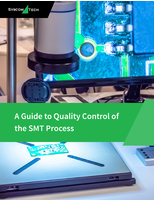ASABE Adopts Updated ISO Standard for rear-mounted PTO linkages.
Press Release Summary:
American Society of Agricultural and Biological Engineers (ASABE) adopted recently amended ISO 730:2009. New standard, ANSI/ASABE AD730:2009 W/Amd 1:2014, Agricultural wheeled tractors — Rear-mounted three-point Linkage — Categories 1N, 1, 2N, 2, 3N, 3, 4N and 4, includes link coupler illustrations and hitch data for larger tractors equipped with 45 mm PTO shafts. These were added in July 2014 Amendment 1 to ISO 730:2009 and further harmonizes national and international standardization.
Original Press Release:
ASABE Adopts Updated ISO Standard for Rear-Mounted PTO Linkages
ST JOSEPH, MICHIGAN— The American Society of Agricultural and Biological Engineers (ASABE) has nationally adopted a recently amended international standard, ISO 730:2009.
The new standard is ANSI/ASABE AD730:2009 W/Amd. 1:2014, Agricultural wheeled tractors — Rear-mounted three-point Linkage — Categories 1N, 1, 2N, 2, 3N, 3, 4N and 4. It includes link coupler illustrations and hitch data for larger tractors equipped with 45 mm PTO shafts, which were added in the July 2014 Amendment 1 to ISO 730:2009. This adoption replaces the 2012 adoption of ISO 730:2009.
This action further harmonizes national and international standardization, a goal that facilitates manufacturing, safety advancements and product marketing worldwide.
ASABE members with standards access and those with site-license privileges can access the full-text of the standard by electronic download in about one week. Location for the download is on the ASABE online Technical Library at: elibrary.asabe.org. Others can obtain a copy for a fee directly from the library or by contacting ASABE headquarters at schultz@asabe.org.
ASABE is recognized worldwide as a standards developing organization for food, agricultural, and biological systems, with more than 250 standards currently in publication. Conformance to ASABE standards is voluntary, except where required by state, provincial, or other governmental requirements, and the documents are developed by consensus in accordance with procedures approved by the American National Standards Institute. For information on this or any other ASABE standard, contact Scott Cedarquist at 269-932-7031, cedarq@asabe.org. A current listing of all ASABE standards projects can be found on the ASABE web site at www.asabe.org/projects.
ASABE is an international scientific and educational organization dedicated to the advancement of engineering applicable to agricultural, food, and biological systems. Further information on the Society can be obtained by contacting ASABE at (269) 429-0300, emailing hq@asabe.org or visiting www.asabe.org/.




